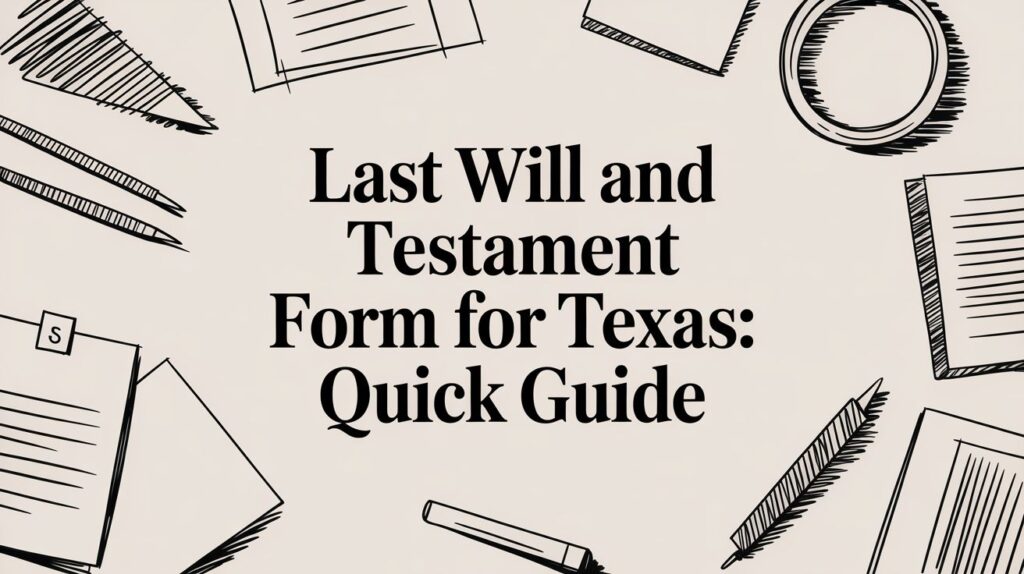A will, also known as a last will and testament, is a legal document that allows a person to express their wishes regarding the distribution of their assets and the handling of their affairs after their death. It is a crucial part of estate planning and enables individuals to determine how they want their property, possessions, and other assets to be divided among their chosen beneficiaries.
Creating a valid will usually requires the testator (the person creating the will) to meet certain legal requirements, such as being of legal age, having the mental capacity to understand the implications of the will, and signing the document in the presence of witnesses. The specific requirements can vary by jurisdiction, so it is essential to consult local laws or seek legal advice to ensure compliance. Having a will allows individuals to control the distribution of their assets and can provide peace of mind, knowing that their wishes will be respected. It is recommended to consult with an estate planning attorney or seek professional guidance when creating a will to ensure that it complies with the specific laws of the jurisdiction and accurately reflects the testator’s intentions.
Legal Requirements for a Valid Texas Will: Age, Writing & Capacity
Legal Requirements for Creating a Will in Texas:
- Age and Testamentary Capacity: In Texas, individuals must be at least 18 years old and of sound mind to create a valid will. Testamentary capacity means having the mental ability to understand the nature of the will and its implications.
- In Writing: In Texas, a will must be in writing, either handwritten or typewritten, and signed by the testator or by someone else in their presence and under their direction.
- Witnesses: The will must be signed by two or more credible witnesses at least 14 years old. These witnesses must understand that the document they witness is the testator’s will.
Key Elements of a Will in Texas:
- Executor: The testator appoints an executor in their will, who will be responsible for administering the estate, managing assets, and ensuring the distribution of assets according to the will’s instructions.

- Beneficiaries: The testator designates beneficiaries who will inherit their assets. These include family members, friends, charitable organizations, or pets.
- Specific Bequests: Specific bequests are instructions for distributing specific items or amounts of money, such as sentimental possessions, valuable assets, or charitable donations.
- Residual Estate: The residual estate encompasses assets not explicitly bequeathed through specific instructions. The testator can outline how the remaining assets will be distributed among the beneficiaries.
- Guardianship: If the testator has minor children, the will can designate a guardian to ensure their well-being in the event of the testator’s death.
Advantages of Creating a Will in Texas:
- Asset Distribution: A will allows individuals to determine how their assets will be distributed among their chosen beneficiaries, ensuring their wishes are respected.
- Guardianship: Parents can name a guardian for their minor children, ensuring their care and well-being.
- Avoiding Intestacy: Creating a will helps avoid intestacy laws, which determine asset distribution without a valid will. By having a will, individuals have control over who inherits their assets.
- Minimizing Family Disputes: A clear and legally binding will can help minimize potential family conflicts over asset distribution.
Considerations and Additional Points in Estate Planning:
- Holographic Wills: Texas recognizes handwritten wills, known as holographic wills, even if they are not witnessed, as long as they meet certain requirements.

- Self-Proving Affidavit: Including a self-proving affidavit with the will simplifies the probate process by providing evidence of the will’s validity without requiring witnesses to testify.
- Revoking or Modifying a Will: Testators can revoke or modify their wills at any time by creating a new will or through specific legal actions, such as codicils or revocation by physical act.
- Professional Legal Advice: It is highly recommended that you consult with an experienced estate planning attorney when creating or updating a will in Texas. They can provide guidance tailored to individual circumstances, ensuring compliance with legal requirements and maximizing the will’s effectiveness.
Dying Without a Will in Texas
Dying without a will, also known as dying intestate, means that a person passes away without having a legally valid document that outlines their wishes for the distribution of their assets after their death. When someone dies without a will, the intestacy laws of the applicable jurisdiction come into effect to determine how the deceased person’s estate will be distributed among their heirs. Without a will, the deceased person loses the opportunity to express their preferences and desires regarding asset distribution, leaving it up to the state’s default laws to decide who will inherit their property. These laws typically prioritize surviving spouses, children, parents, and other close relatives in a specific order of priority.
In Texas, when a person dies without a will (intestate), the state’s intestacy laws come into play to determine how the deceased person’s assets will be distributed. The specific rules of intestate succession in Texas prioritize surviving family members in a particular order. Here is a general overview of the inheritance hierarchy in Texas when there is no will:
Spouse’s Share:
- If the deceased person is survived by a spouse but no children or descendants, the spouse inherits the entire estate.
- If the deceased person is survived by a spouse and children or descendants who are also the surviving spouse’s children, the spouse inherits the entire estate.
- If the deceased person is survived by a spouse and children or descendants who are not children of the surviving spouse, the spouse inherits one-third of the personal estate and retains a life estate in one-third of the real estate.
Children’s Share:
- If the deceased person is survived by children or descendants but no spouse, the children inherit the entire estate equally.
- Suppose the deceased person is survived by both a spouse and children who are not the surviving spouse’s children. In that case, the children inherit two-thirds of the personal estate and two-thirds of the real estate, while the surviving spouse retains one-third of the personal estate and a life estate in one-third of the real estate.
Parents’ Share:
- If the deceased person is not survived by a spouse or children, the parents inherit the entire estate equally, or the surviving parent inherits the entire estate.
Siblings’ Share:
- If the deceased person is not survived by a spouse, children, or parents, the estate is inherited by the deceased person’s siblings or their descendants. Without siblings, the estate may pass to other relatives according to intestacy laws.
It is essential to note that the specific distribution of assets under intestacy laws can become more complex if there are half-siblings or other variations in the family structure. In some cases, if there are no surviving relatives, the estate may escheat to the state of Texas.
It is advisable to consult with an experienced estate planning attorney in Texas, like the Law Office of Bryan Fagan, to understand the state’s intestacy laws and how they specifically apply to your situation. Creating a comprehensive estate plan, including a valid will, can help ensure your assets are distributed according to your specific wishes and avoid potential conflicts among family members.








